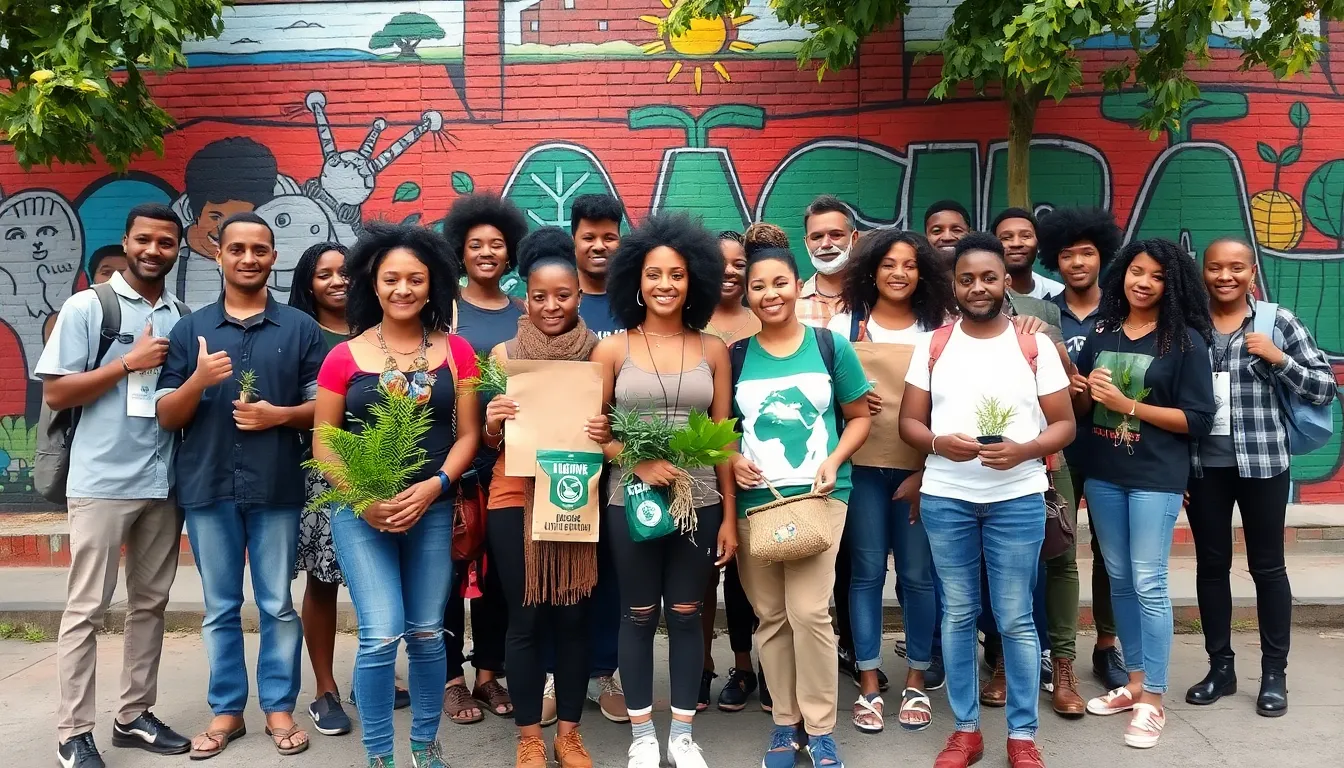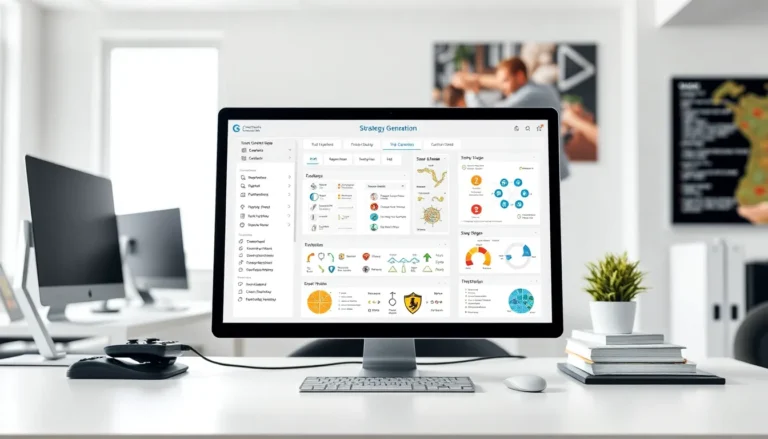In a world where the news often feels like a never-ending loop of chaos, the Right Livelihood Award 2020 laureates shine like beacons of hope. These remarkable individuals aren’t just changing their communities; they’re redefining what it means to live a life of purpose. Forget about your average awards show—this one celebrates those who tackle the big issues with creativity, grit, and a sprinkle of humor.
From environmental warriors to social justice champions, the 2020 laureates have shown that doing good can be both impactful and fun. They remind us that while the world may throw challenges our way, there’s always room for innovation and laughter. Dive into the stories of these inspiring change-makers and discover how they’re making the world a better place, one laugh and one solution at a time.
Table of Contents
ToggleOverview of the Right Livelihood Award
The Right Livelihood Award recognizes individuals and organizations for their exemplary contributions to social justice, sustainable development, and peace. Initiated in 1980, the award seeks to honor those who commit their lives to making a positive impact on their communities. This prestigious accolade often highlights grassroots movements and innovative solutions to urgent global challenges.
Laureates of the Right Livelihood Award receive not just recognition but also practical support for their vital work. Financial assistance enables them to expand their efforts, reaching wider audiences and creating sustainable changes. Each awarded individual or organization demonstrates courage and resilience, facing significant risks to advocate for human rights and environmental protection.
In 2020, the award highlighted four remarkable laureates who excelled in various fields. These change-makers tackled issues such as human rights, environmental degradation, and social equality. Their unique approaches inspire others to join the fight for justice, emphasizing the significance of community-driven solutions in a rapidly changing world.
The legacy of the Right Livelihood Award continues to grow, with a diverse network of past laureates sharing their experiences and strategies. Through collaboration, these champions illustrate that collective action often leads to transformative impact. Engaging with their stories offers insights into the various pathways available for those dedicated to promoting a better future for people and the planet.
Significance of the Right Livelihood Award

The Right Livelihood Award plays a crucial role in promoting social justice and environmental sustainability. Recognizing pioneering individuals and organizations, it amplifies voices that challenge injustice and advocate for positive change. By spotlighting grassroots movements, the award inspires collective action against global issues.
Past laureates exemplify the power of innovative solutions. For instance, 2020 laureates address pressing human rights violations and environmental crises. Financial support accompanying the award enables these change-makers to expand their initiatives, enhancing their capacity to generate impact.
The legacy of the Right Livelihood Award extends beyond recognition. It fosters a network of change-makers who share knowledge and strategies. This community empowers new movements in social and environmental advocacy. Celebrating diverse contributions, it emphasizes the importance of collaboration in making meaningful progress.
Increasing awareness of sustainable practices links the work of award recipients to broader societal benefits. Environmental stewardship gains traction as laureates integrate eco-friendly approaches into their projects. Access to resources provided by the award allows them to implement innovative strategies, creating lasting change in their communities.
The significance of the Right Livelihood Award lies in its ability to uplift transformative leaders. It highlights the interconnectedness of humanitarian efforts and ecological preservation. As it continues to evolve, the award encourages future generations to pursue meaningful actions for a just and sustainable world.
Right Livelihood Award 2020 Laureates
The 2020 Right Livelihood Award recognized four distinguished individuals for their significant contributions to social justice and environmental protection.
Laureate 1: Nnimmo Bassey and Contributions
Nnimmo Bassey, a renowned Nigerian environmentalist, advocates tirelessly for ecological justice and human rights. His work emphasizes the fight against corporate exploitation of resources in the Niger Delta. Bassey co-founded the Environmental Rights Action and has authored influential publications on the impact of oil extraction on communities. His efforts spotlight the intersection of environmental degradation and social equity, aiming to empower local communities to assert their rights.
Laureate 2: Ruchira Gupta and Contributions
Ruchira Gupta, an Indian activist, addresses human trafficking and women’s rights through her organization, Apne Aap Women Worldwide. She champions the rights of marginalized women and girls, focusing on prevention strategies and rehabilitation programs. Gupta’s dedication to empowering survivors showcases how education and activism can transform lives. Her work illustrates the urgent need to combat exploitation while fostering community-based solutions.
Laureate 3: The T’ruah Organization and Contributions
The T’ruah Organization, a network of Jewish clergy, advocates for human rights, focusing on protecting marginalized communities. Through campaigns addressing issues like police violence and immigration justice, T’ruah amplifies the voices of those often overlooked. Its approach integrates faith-based activism with social justice, fostering solidarity among diverse groups. This organization exemplifies how collective action can promote equality and drive systemic change.
Impact of the 2020 Award on Global Issues
The 2020 Right Livelihood Award significantly influenced global issues by spotlighting critical challenges such as human rights violations, environmental degradation, and social inequality. Nnimmo Bassey’s advocacy for ecological justice draws attention to the severe impacts of oil extraction in the Niger Delta. Ruchira Gupta’s work combats human trafficking, emphasizing the importance of education as a tool for empowerment in vulnerable communities.
The T’ruah Organization’s efforts showcase how faith-based activism contributes to advocating for marginalized groups. Recognizing these laureates amplifies their messages, encouraging global awareness and collective action. By providing financial support, the award enhances their capacity to implement sustainable solutions, ultimately benefiting their communities.
Laureates inspire others by demonstrating that innovative, grassroots initiatives can lead to substantial change. Through their work, they reveal the interconnectedness of various social and environmental issues. The award cultivates a network of change-makers, sharing knowledge and strategies to tackle pressing global challenges collaboratively.
Highlighting accomplishments fosters a greater understanding of the need for systemic change at a global level. Over time, the impact of the laureates extends beyond their immediate spheres, motivating movements aimed at justice and sustainability. In essence, the 2020 Right Livelihood Award champions the idea that individual and collective efforts can drive transformative change in society.
The 2020 Right Livelihood Award laureates stand as powerful examples of how dedicated individuals can spark meaningful change. Their commitment to social justice and environmental sustainability serves as a beacon of hope in a world facing numerous challenges. By sharing their innovative solutions and grassroots initiatives, they inspire others to take action in their own communities.
Recognizing these laureates not only honors their efforts but also amplifies the urgent need for collective action. Their stories encourage a deeper understanding of the interconnectedness of human rights and environmental issues. As the legacy of the Right Livelihood Award continues to grow, it paves the way for future generations to pursue impactful paths toward a just and sustainable world.



